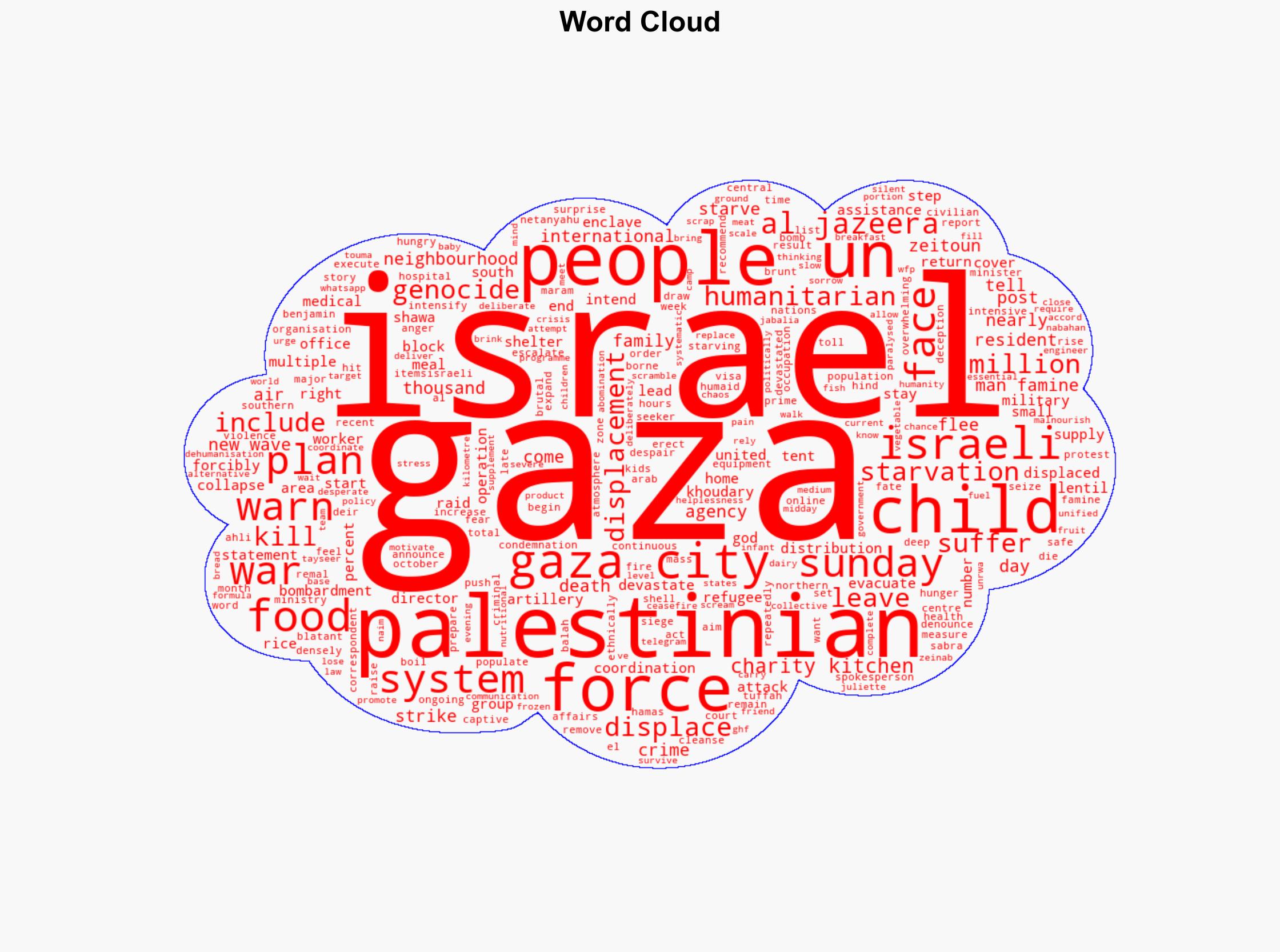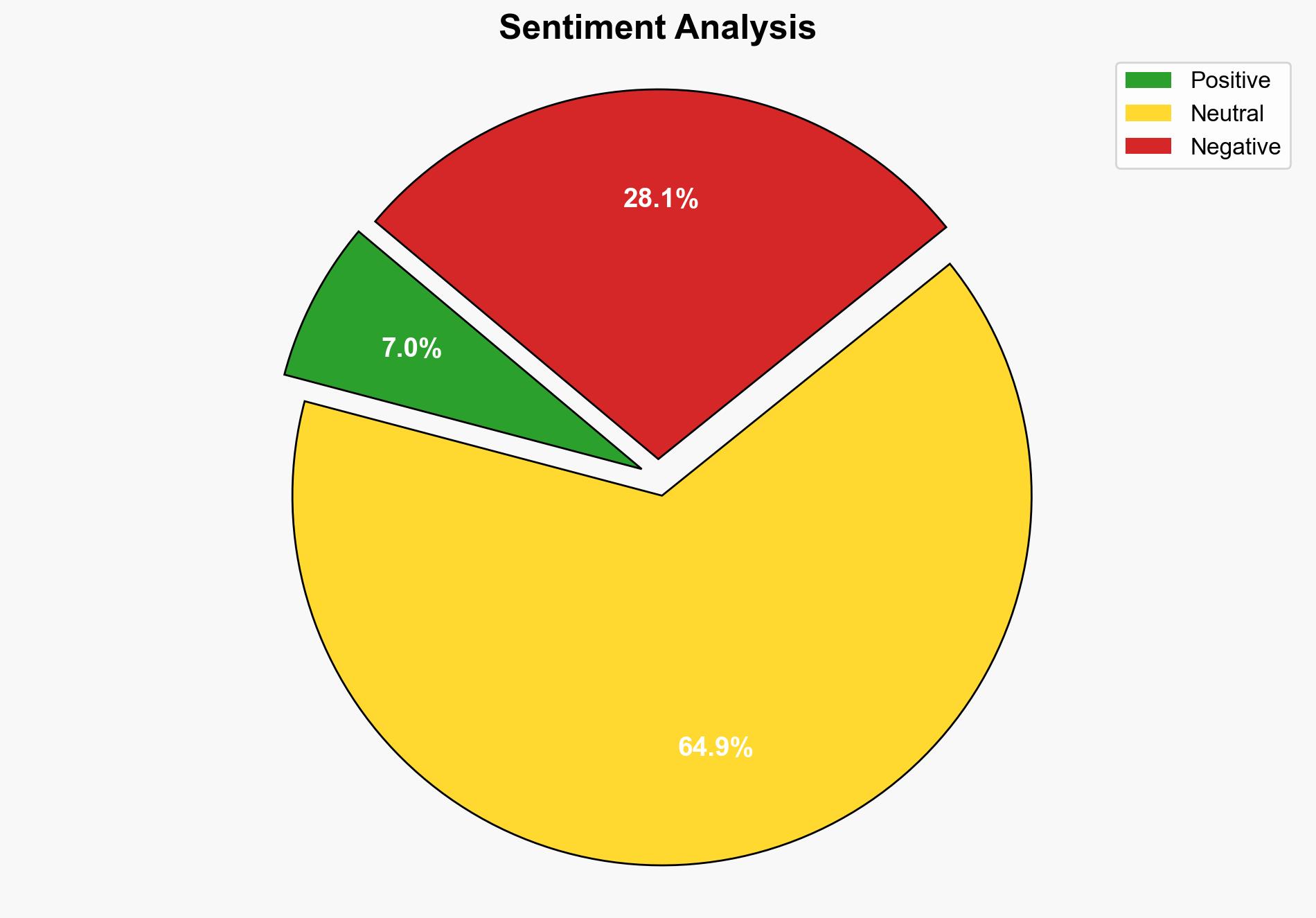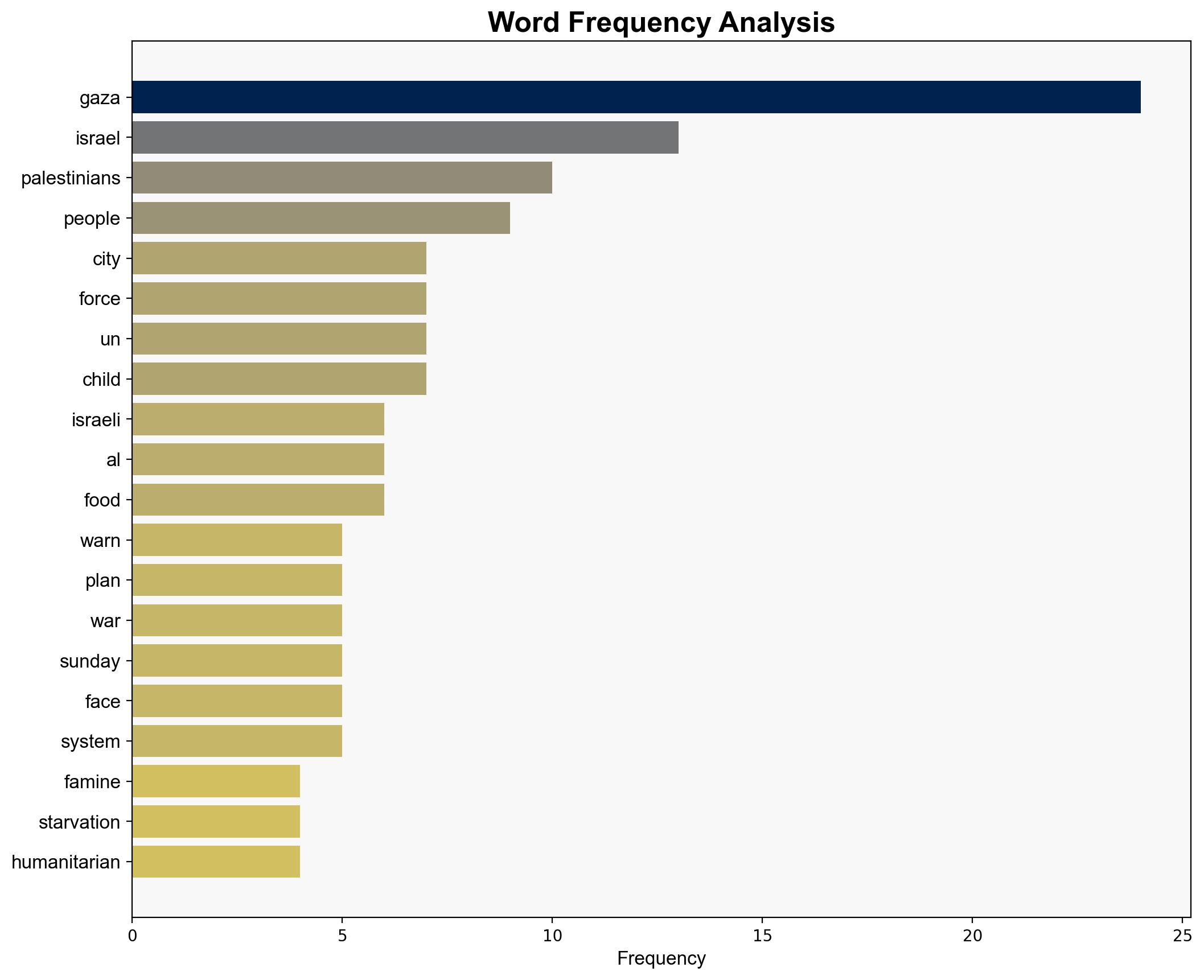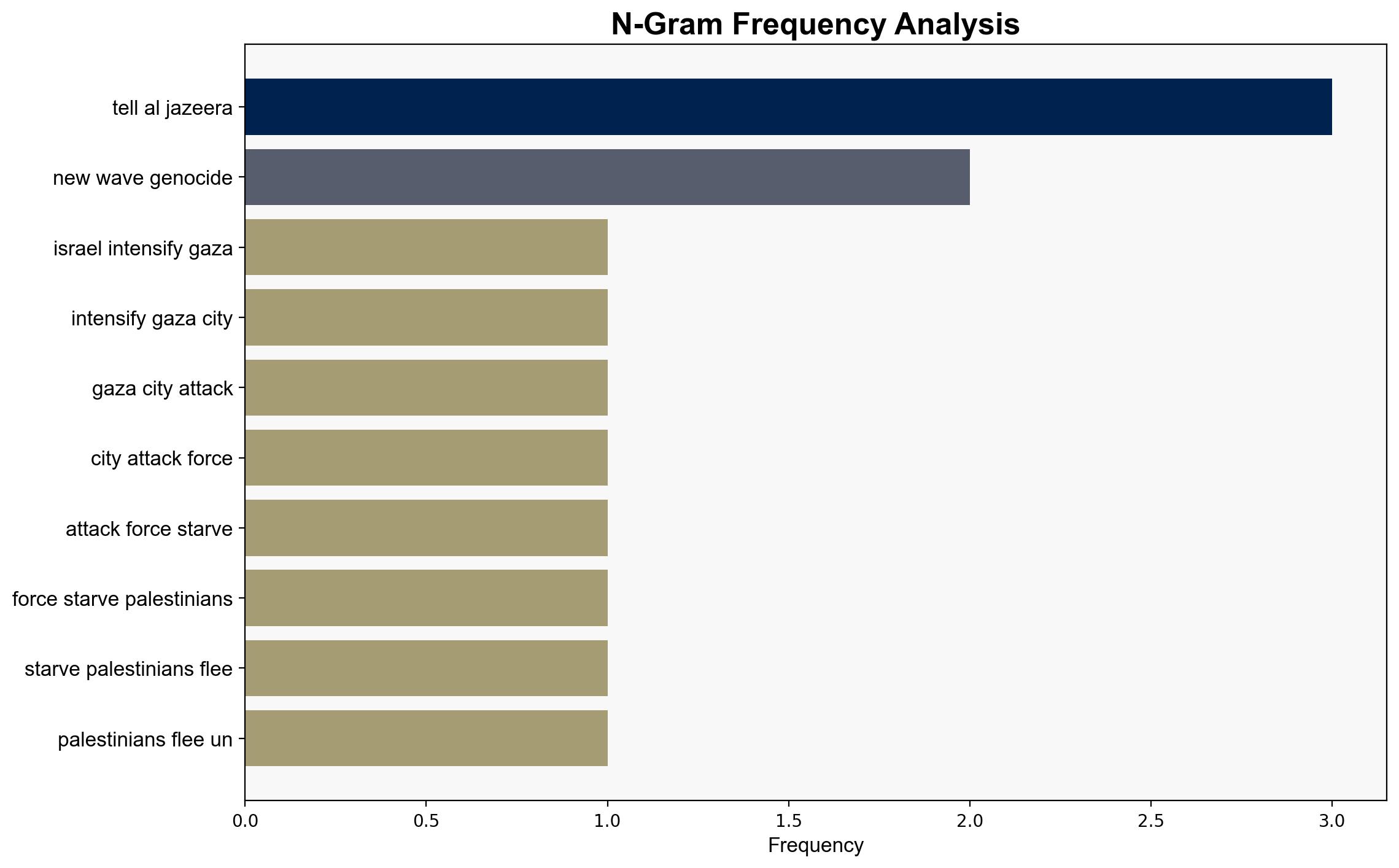Israel intensifies Gaza City attacks forcing starving Palestinians to flee – Al Jazeera English
Published on: 2025-08-17
Intelligence Report: Israel intensifies Gaza City attacks forcing starving Palestinians to flee – Al Jazeera English
1. BLUF (Bottom Line Up Front)
The situation in Gaza is escalating with significant humanitarian implications. The most supported hypothesis is that Israel’s intensified military operations aim to strategically displace Palestinian populations to weaken Hamas’s operational capabilities. This report recommends diplomatic engagement and humanitarian intervention to prevent further escalation and address the humanitarian crisis. Confidence Level: Moderate.
2. Competing Hypotheses
1. **Hypothesis A**: Israel’s intensified attacks are primarily aimed at degrading Hamas’s military capabilities and infrastructure within Gaza City. This involves strategic displacement of populations to reduce civilian casualties and limit Hamas’s ability to use civilians as shields.
2. **Hypothesis B**: The operations are part of a broader strategy to ethnically cleanse northern Gaza, as suggested by accusations of forced displacement and genocide. This hypothesis is supported by reports of systematic displacement and international condemnation.
Using Analysis of Competing Hypotheses (ACH), Hypothesis A is better supported by Israel’s historical military objectives and statements emphasizing security concerns. However, Hypothesis B cannot be entirely dismissed due to the scale of displacement and international reactions.
3. Key Assumptions and Red Flags
– **Assumptions**:
– Hypothesis A assumes Israel’s primary goal is military rather than territorial.
– Hypothesis B assumes a deliberate intent for ethnic cleansing, which requires evidence beyond displacement patterns.
– **Red Flags**:
– Lack of independent verification of casualty figures and displacement statistics.
– Potential bias in source reporting, particularly from entities with vested interests.
– Inconsistent narratives regarding the intent and scope of Israeli operations.
4. Implications and Strategic Risks
– **Humanitarian Crisis**: Continued military operations could exacerbate the humanitarian situation, leading to increased international pressure and potential sanctions.
– **Regional Stability**: Escalation may provoke wider regional conflicts, drawing in neighboring countries and non-state actors.
– **Geopolitical Tensions**: The situation could strain Israel’s relations with key allies and impact global diplomatic alignments.
5. Recommendations and Outlook
- Engage in diplomatic efforts to broker a ceasefire and facilitate humanitarian aid delivery.
- Monitor regional actors for signs of escalation or intervention.
- Scenario Projections:
– **Best Case**: Diplomatic resolution leads to a ceasefire and humanitarian relief.
– **Worst Case**: Escalation into a broader regional conflict.
– **Most Likely**: Prolonged conflict with intermittent ceasefires and continued humanitarian challenges.
6. Key Individuals and Entities
– Benjamin Netanyahu: Israeli Prime Minister, central to strategic decisions.
– Hamas: Palestinian militant group, primary target of Israeli operations.
– United Nations: Key international body for humanitarian coordination and diplomatic intervention.
7. Thematic Tags
national security threats, humanitarian crisis, regional conflict, geopolitical tensions





